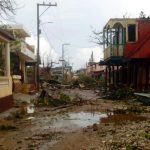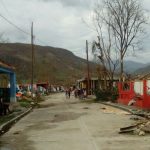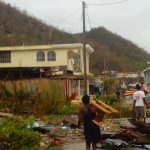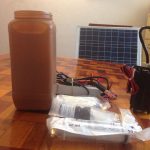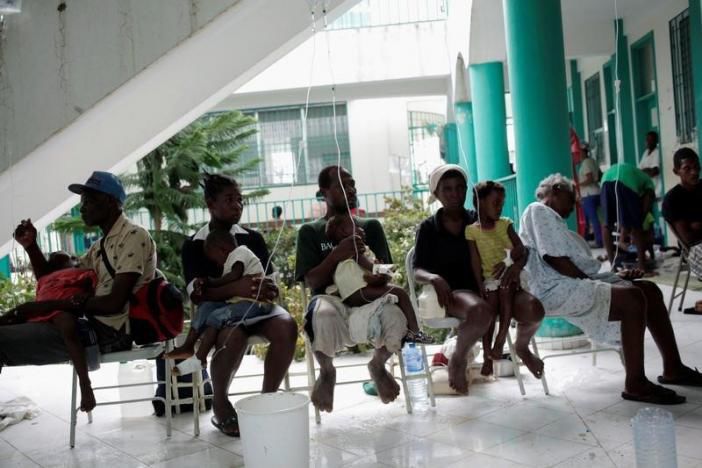(Source:https://www.washingtonpost.com/news/worldviews/wp/2016/10/13/haitians-are-desperate-for-help-but-they-dont-want-it-from-the-american-red-cross/?hpid=hp_no-name_hp-in-the-news:page/in-the-news)
By Peter Holley October 13 at 6:16 AM
A week after Hurricane Matthew ravages Haiti, relief slowly on the horizon Play Video1:57
Haiti is still reeling from Category 4 Hurricane Matthew, which killed hundreds of people and left thousands more without their homes. (Victoria Walker, Joshua Partlow/The Washington Post)
As Hurricane Matthew churned toward Haiti at full force last week, France Francois knew she was powerless to stop the impending natural disaster.
But with time running out, the 30-year-old Haitian American thought she might be able to help the island nation avoid the man-made disaster that she expected to follow.
Before the storm struck, Francois, a former development worker in Haiti, turned to Facebook and composed a list explaining how people could help the hurricane-ravaged country.
Her first instruction: “Don’t give to the American Red Cross.”
Instead, she wrote, people should send money to “Haitian-led” organizations and “not your missionaries and useless college kids.”
“We wanted to highlight the fact that there are local organizations on the ground that can mobilize quickly and more effectively than an organization parachuting in from Washington or Europe,” the Miami resident said in an interview from Panama, where she was visiting when the storm struck. “Organizations like that take time and resources away from the people who are suffering.”
[The Red Cross had $500 million in Haitian relief money, but it built just 6 houses]
In recent days, her post has been shared thousands of times — in part, she believes, because it tapped into a growing consensus among Haitians and Haitian Americans that the American Red Cross can no longer be trusted to effectively manage humanitarian efforts in the Caribbean nation.
Those feelings have been bolstered by a widely circulated investigation by NPR and ProPublica, which found that the Red Cross grossly mismanaged its response to Haiti’s 2010 earthquake, one of the worst natural disasters in the history of the Western Hemisphere.
A Red Cross spokeswoman said the organization has raised $3.3 million “in designated donations and pledges for Hurricane Matthew.”
“We do not know if calls to avoid donating to RC have damaged our fundraising efforts, but we are concerned that it could hurt our fundraising, as well as that of other international aid agencies, which would be a tragedy for Haiti,” Suzy DeFrancis said.
Published last year, the NPR and ProPublica investigation found that, despite collecting nearly a half-billion dollars in donations, the Red Cross managed to construct just six permanent homes.
Over the weekend, NPR and ProPublica’s investigation — and subsequent articles about its findings — were resurrected on social media, where they attracted the attention of celebrities, journalists and potential donors.
In response, Gail McGovern, the president and CEO of the American Red Cross, published a lengthy blog post on Huffington Post that acknowledged the “persistent myths circulating online” about the American Red Cross response to the 2010 earthquake. She blamed those myths on “the misleading headline of a story written by ProPublica and NPR in 2015,” which, she added, is again making the rounds “in the wake of this latest disaster.”
“It creates the false impression that the only thing the American Red Cross did with $488M in donor money was to build six homes — when, in fact, we have funded 100 different humanitarian aid projects in Haiti,” McGovern wrote.
“It would be a shame if myths circulated online by people who want to help Haiti, actually end up hurting relief efforts,” she added
